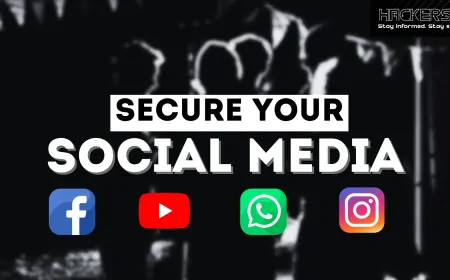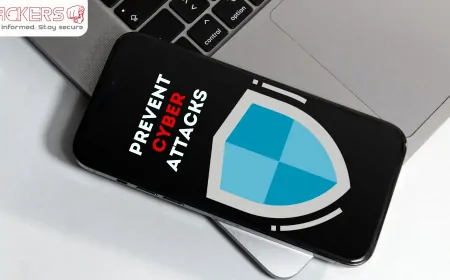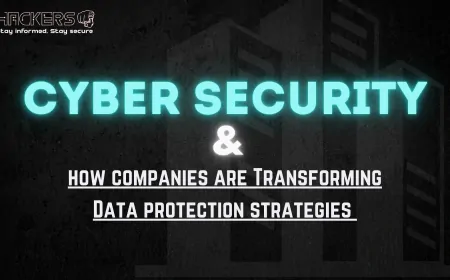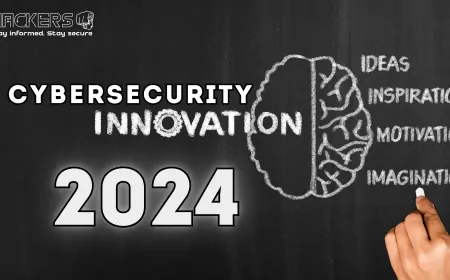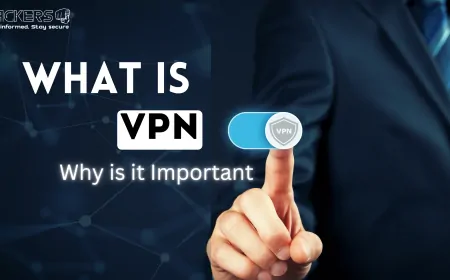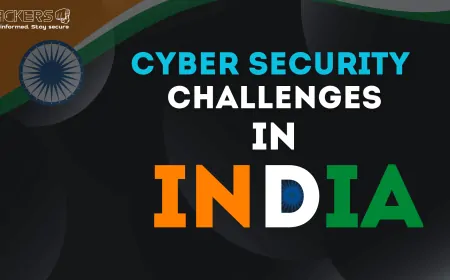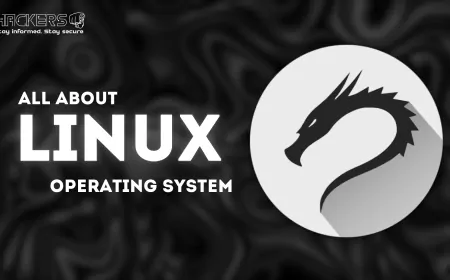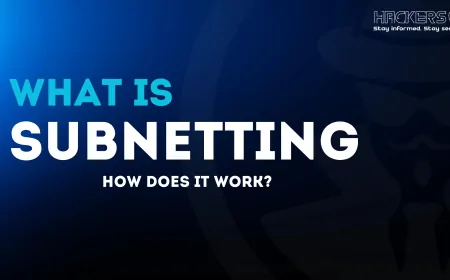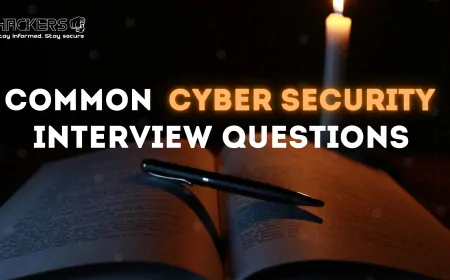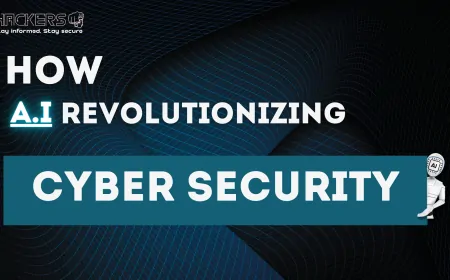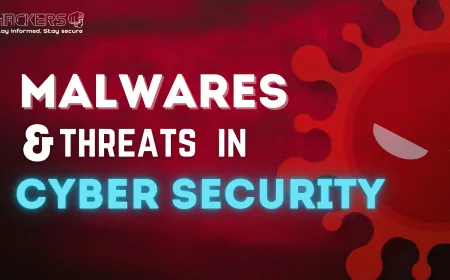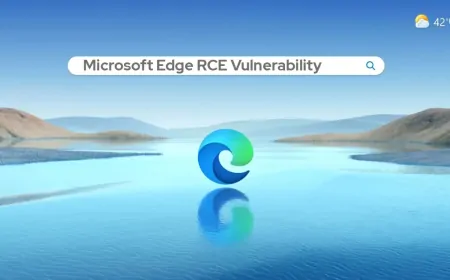The Ultimate Guide to Becoming a Certified Ethical Hacker: Salary, Certifications, and Career Growth
Explore the ultimate guide to becoming a Certified Ethical Hacker. Learn about necessary certifications, career growth, salary expectations, and the skills needed to excel in this high-demand cybersecurity field. Start your journey toward ethical hacking success in 2024

Introduction
Becoming a Certified Ethical Hacker (CEH) is one of the most rewarding paths in the ever-expanding field of cybersecurity. With the rise of cyber threats, ethical hackers play a critical role in protecting sensitive data and preventing cybercrime. In this guide, we’ll explore the journey to becoming a certified ethical hacker, the certifications you’ll need, the potential salary you can earn, and the career growth opportunities available.
1. What is an Ethical Hacker?
An ethical hacker, also known as a white-hat hacker, is a cybersecurity professional who uses hacking techniques to identify and fix vulnerabilities in systems, networks, and applications. Their role is crucial in helping businesses secure their digital infrastructure from malicious attacks. Unlike black-hat hackers, ethical hackers work with authorization to improve security.
2. Why Pursue a Career as a Certified Ethical Hacker?
As cybersecurity threats continue to grow, ethical hackers are in high demand across various industries, including finance, government, healthcare, and tech. Ethical hacking offers high job security due to the increasing need for professionals who can protect sensitive information from cybercriminals. The career also offers the opportunity to work in diverse roles, from penetration testing to vulnerability assessment.
3. The Path to Becoming a Certified Ethical Hacker
To become a certified ethical hacker, you'll need to follow these key steps:
a. Build a Strong Foundation in IT and Cybersecurity:-
A basic understanding of networking, programming, and security protocols is essential. Focus on learning key technologies such as TCP/IP, firewalls, and encryption. Free online resources, books, and courses can be great starting points.
b. Understand Ethical Hacking Concepts:-
Learn core topics like penetration testing, vulnerability scanning, network security, and threat intelligence. Hands-on practice using ethical hacking labs and virtual environments will solidify your skills.
c. Choose the Right Ethical Hacking Certification:-
The most recognized certification in the field is the Certified Ethical Hacker (CEH), offered by EC-Council. Other certifications like Offensive Security Certified Professional (OSCP) and CompTIA Security+ are also great for aspiring ethical hackers.
4. Ethical Hacker Salary Expectations in 2024
The salary of a certified ethical hacker can vary based on experience, certifications, and location.Here's a breakdown of what you can expect:
- Entry-Level Ethical Hackers: $60,000 - $80,000 annually
- Mid-Level Ethical Hackers: $80,000 - $120,000 annually
- Senior Ethical Hackers: $120,000 - $150,000+ annually
Certifications like CEH or OSCP significantly boost earning potential, especially with experience. For instance, the salary of a professional with an OSCP certification is often higher due to the advanced skills it signifies.
5. Career Growth and Opportunities for Ethical Hackers
As you gain experience and expand your certifications,the career growth potential in ethical hacking is significant:
- Entry-Level Jobs: As a security analyst or penetration tester, ethical hackers begin by identifying and mitigating vulnerabilities.
- Mid-Level Jobs: With more experience, you may move into roles like security architect, incident responder, or threat hunter.
- Advanced Roles: Senior positions include Chief Security Officer (CSO) or security consultant, where professionals can oversee an entire organization's security infrastructure.
Additionally, ethical hackers have the flexibility to specialize in fields like cloud security, threat hunting, or application security, further enhancing career prospects.
6. Job Outlook for Ethical Hackers
The demand for ethical hackers is projected to continue growing as cybercrime becomes more sophisticated. In 2024, cybersecurity roles are expected to increase by 35% globally, with ethical hackers being among the most sought-after professionals. Industries such as healthcare, finance, and government, which handle sensitive information, are particularly in need of skilled cybersecurity professionals.
7. Tools and Technologies Ethical Hackers Use
Ethical hackers use a variety of tools and technologies to perform penetration testing, vulnerability scanning, and threat analysis.Some of the most popular tools include:
- Kali Linux: A powerful Linux distribution used for penetration testing and digital forensics.
- Metasploit: A framework for developing and executing exploit code against remote targets.
- Wireshark: A network protocol analyzer used for monitoring and analyzing network traffic.
- Burp Suite: A popular tool for web application security testing.
By mastering these tools, ethical hackers can enhance their ability to discover vulnerabilities and protect organizations from cyber threats.
8. Challenges and Ethical Considerations
Ethical hackers face unique challenges, including balancing offensive tactics with legal boundaries. It's essential to obtain proper authorization before conducting any form of ethical hacking to avoid legal issues. Furthermore, hackers must stay updated on ever-changing laws and regulations governing cybersecurity in different regions.
Conclusion
If you're passionate about technology, problem-solving, and protecting online data, becoming a certified ethical hacker can be a rewarding career choice. The demand for skilled ethical hackers is high, and as the digital landscape continues to expand, so will job opportunities and salary potential. Whether you’re just starting in IT or looking to level up your career, pursuing certification in ethical hacking offers a promising future.
Certification Comparison for Ethical Hackers
| Certification | Provider | Prerequisites | Cost | Salary Potential | Validity |
|---|---|---|---|---|---|
| Certified Ethical Hacker (CEH) | EC-Council | 2 years of work experience in cybersecurity or EC-Council’s training course | $1,199 (approx.) | $80,000 - $120,000+ | 3 years |
| Offensive Security Certified Professional (OSCP) | Offensive Security | Basic Linux and networking knowledge | $1,500+ (including exam) | $90,000 - $140,000+ | 3 years |
| CompTIA Security+ | CompTIA | No prerequisites, though basic IT knowledge is recommended | $350 - $450 | $60,000 - $85,000+ | 3 years |
This table serves as a quick comparison of the most popular certifications in the field of ethical hacking, providing readers with a snapshot of what to expect in terms of prerequisites, costs, and salary potential.
(FAQs)
1. What is an Ethical Hacker?
Answer: An ethical hacker, also known as a white-hat hacker, is a cybersecurity professional who is hired to test systems for vulnerabilities. They use the same tools and techniques as malicious hackers but with authorization to help secure systems from cyber threats.
2. How Can I Become a Certified Ethical Hacker?
Answer: To become a certified ethical hacker, you need to gain experience in IT and cybersecurity, learn ethical hacking concepts, and obtain certifications such as Certified Ethical Hacker (CEH), Offensive Security Certified Professional (OSCP), or CompTIA Security+.
3. How Much Does a Certified Ethical Hacker Earn?
Answer: Salaries for certified ethical hackers vary based on experience and location. On average, entry-level ethical hackers earn between $60,000 - $80,000 annually, while mid-level professionals make between $80,000 - $120,000, and senior professionals can earn $120,000 - $150,000+.
4. What Certifications Do I Need to Become an Ethical Hacker?
Answer: The most recognized certifications for ethical hackers are the Certified Ethical Hacker (CEH) by EC-Council, the Offensive Security Certified Professional (OSCP), and the CompTIA Security+ for beginners. These certifications demonstrate your expertise in ethical hacking and cybersecurity.
5. What Skills Are Required to Become a Certified Ethical Hacker?
Answer: A strong foundation in IT skills is essential, including knowledge of networking, programming, security protocols, and operating systems. It’s also important to have hands-on experience with ethical hacking tools like Kali Linux, Metasploit, and Wireshark.
6. What Job Opportunities Are Available for Certified Ethical Hackers?
Answer: Ethical hackers can work in various roles, such as penetration testers, security analysts, security consultants, and chief security officers (CSOs). They can also specialize in areas like cloud security, incident response, or application security.
7. How Long Does It Take to Become a Certified Ethical Hacker?
Answer: The time it takes to become a certified ethical hacker depends on your background. If you already have an IT or cybersecurity foundation, you may be able to obtain a certification in 6-12 months. If you're starting from scratch, it may take longer.
8. Is Ethical Hacking Legal?
Answer: Yes, ethical hacking is legal when performed with proper authorization. Certified ethical hackers follow strict legal and ethical guidelines to identify and mitigate security vulnerabilities without causing harm to systems or data.
9. How Do Ethical Hackers Stay Updated with New Cyber Threats?
Answer: Ethical hackers stay up to date by attending industry conferences, taking continuous training, participating in hacking challenges, and subscribing to cybersecurity news and forums. Continuous learning is critical in this rapidly evolving field.
10. What Are the Career Growth Opportunities for Ethical Hackers?
Answer: Ethical hackers can advance their careers by gaining more experience, pursuing additional certifications, or specializing in areas like penetration testing, incident response, or threat hunting. With experience, they can move into leadership roles such as CSO or cybersecurity consultant.
What's Your Reaction?








